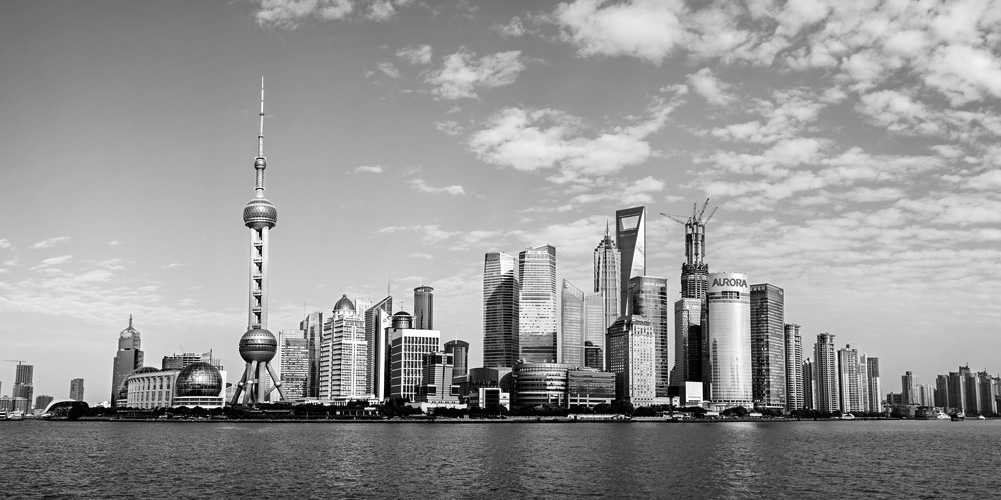Opportunities with China
As the UK seeks to build stronger bilateral relationships in the aftermath of the vote to leave the European Union, China has been top of the list. George Osborne famously ramped up the UK’s relationship with China and heralded the beginning...
As the UK seeks to build stronger bilateral relationships in the aftermath of the vote to leave the European Union, China has been top of the list.
George Osborne famously ramped up the UK’s relationship with China and heralded the beginning of a new golden era of UK-China relations. The UK was fast to support the new China-led Asia Infrastructure Investment Bank and has become the largest RMB trading centre outside of China. After a short wobble Theresa May has welcomed Chinese investment in the UK’s energy infrastructure and other sectors. And at the FCO’s recent UK-China High-Level People-to-People Dialogue on 4 December in Shanghai, we signed 14 memorandum of understanding to increase collaboration in areas of sport, culture, media, science, health, education, tourism and youth exchange.
The imperative to build a relationship with China is clear. The world economic centre of gravity has shifted distinctly eastward, and China is playing an increasingly prominent role in global political and economic affairs.
But building these relationships does not come without its challenges. The necessity to balance our own trade, diplomatic and security considerations with China has posed difficulties to the UK – as increasingly are balancing the reality of our domestic politics with our international aspirations.
Our engagements with China have also at times pitted us against the policies of our US and EU counterparts. Where the US’s TTP agreement was designed to stem Chinese economic dominance in Asia, the UK has proactively supported Chinese efforts to increase their global footprint, particularly by investing in the Asian Infrastructure Investment Bank and Silk Road project.
China is facing its own economic, demographic and political changes, whose impacts have yet to be fully understood and manifested. While globalization has benefited China and lifted millions of people out of poverty, sustained stability in China is a function of continued economic growth. China now faces the ‘new normal’ of: lower economic growth; a growing middle class with increasing connection to markets and social networks outside of China; and growing inequality.
But despite these challenges, there is also much we can share. I took part in the UK-China Young Leaders Roundtable, which was part of the High Level People to People dialogue. The dialogues are designed to facilitate exchange and collaboration between up and coming leaders in the UK and China. The themes of this year’s dialogue were making globalization inclusive and innovation and technology. Some of the major areas of opportunity for collaboration we discussed include:
- The UK higher education sector is in high demand as are the opportunities to collaborate in science and technology. Both countries face difficulties in commercialising their innovations and can learn from successful examples in the US and Israel. Worries about the protection of intellectual property are being addressed in China, with many of the big cities introducing intellectual property rights courts to adjudicate on cases.
- China is facing an imminent aging population crisis as a result of the one-child policy. This puts pressure both on families and on state finances. Our Chinese counterparts were interested to know how the UK had dealt with adult social care at local level and how we have been dealing with the issue of state pensions.
- There is also much we can learn from each other in the pursuit of inclusive globalization. Our Chinese counterparts were concerned about the global impacts of a de-globalisation trend in the US and UK and keen to understand why members of society felt ‘left behind’. Both our countries are trying to balance economic, social and ecological impacts of globalization – balancing global trade with domestic demand and production; balancing global exchange with the protection of local culture; and managing environmental externalities.
- Speaking to UK business leaders in China, we also learned that a healthy dose of reality is needed to better understand the business environment in the UK and China. Politicians often paint an overly positive picture of companies’ ability to invest and develop businesses in our respective economies. More work needs to be done to improve understanding of the various planning and business cultures in each country.
We have much to learn about the role China sees for itself in the world. Whilst it has increased its global engagements, it is worth remembering that for the most part China’s foreign policy is a function of its domestic policy. Domestic stability and projecting power internally are the government’s driving motivation.
China is asserting itself both as a leader on issues like climate change and in its territorial disputes in the South China Sea. Under Trump the US will likely retreat from its engagements in Asia, leaving China to its own sphere of influence. In this context, there are opportunities for the UK to play a proactive role in working with China, both to develop a trading relationship and to encourage further positive engagement in the big global challenges we all face.
Image: Dorli Photography

